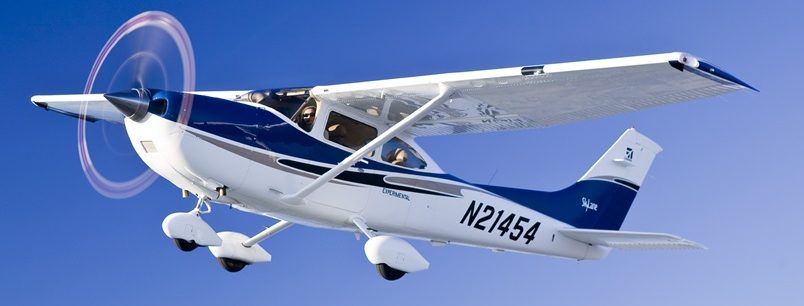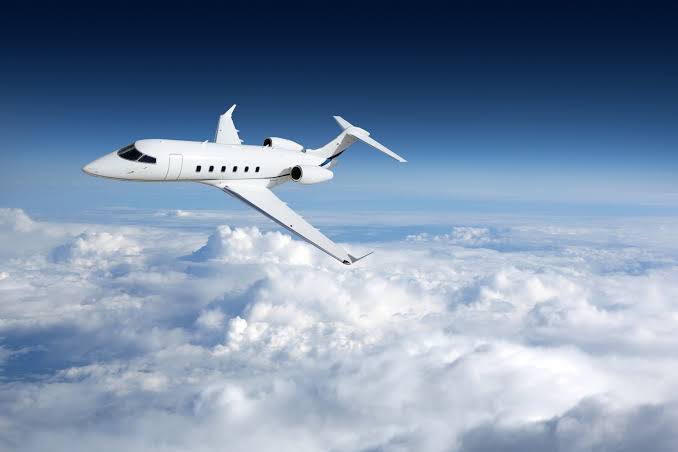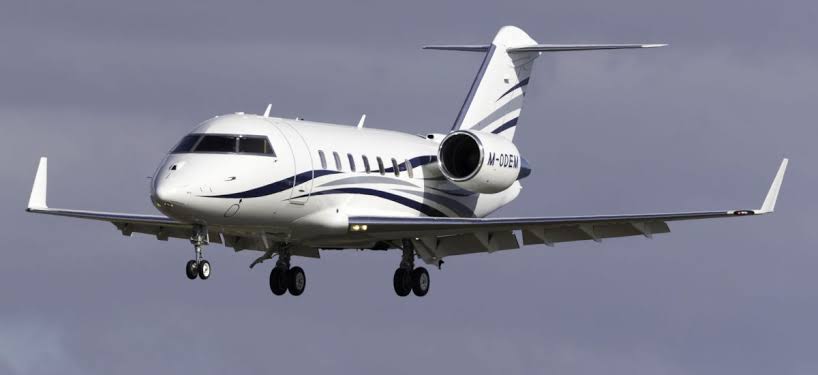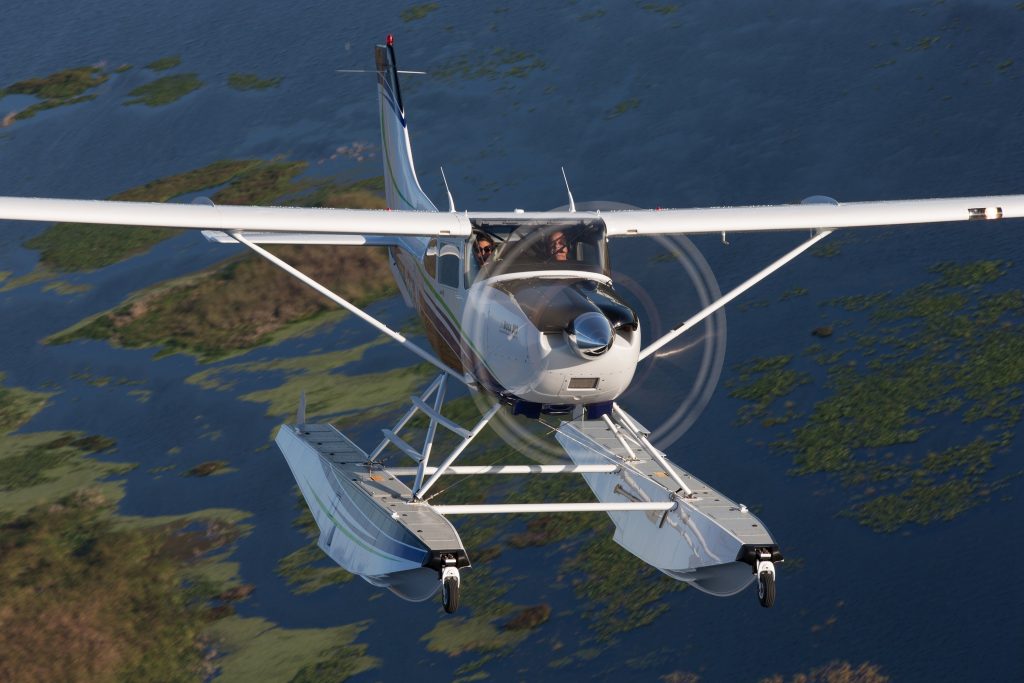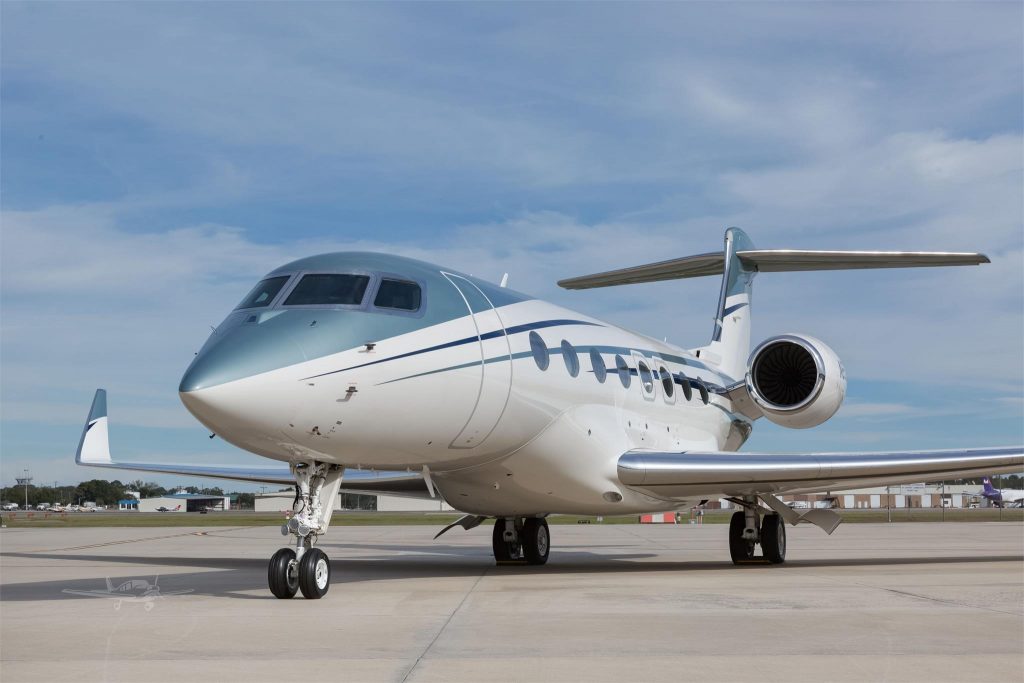Understanding Aircraft Registration: A Guide for New Jet Owners
Embarking on your journey as a new private jet owner comes with many responsibilities, one of the most pivotal being proper aircraft registration. This not only marks your official ownership but also ensures your compliance with both national and international aviation regulations. This comprehensive guide is designed to simplify the often complex process of aircraft registration. We explore everything, from the fundamental basics of FAA aircraft registration, step-by-step guide to the registration process, considerations for international registrations, to the renewal, maintenance and special situations that you might experience. Furthermore, the article delves into future trends making rounds in the aircraft registration world. Outlined below is a roadmap for new jet owners to reduce turbulence in the registration process and ensure a seamless flight in the world of jet ownership. Buckle up and get ready to take off!
FAA Aircraft Registration Basics
Begin your journey into private jet ownership by comprehending FAA Aircraft Registration Basics. This will provide a strong foundation for your private jet ownership.
Eligibility Requirements for Aircraft Registration
To qualify for an aircraft registration with the FAA, you must satisfy some prerequisites. First and foremost, the aircraft must be owned by a US citizen, which also includes organizations where the President and at least two-thirds of the board of directors and other managing officers are U.S citizens, and in which at least 75% of the voting interest is owned or controlled by U.S citizens. If the aircraft is to be operated by a foreign air carrier or if the aircraft is designed by the State Department as available for charter to foreign air carriers, it may not be eligible for registration.
Types of Registration
Standard Registration
New aircraft owners typically engage in standard aircraft registration. This is achieved by applying via Form AC 8050-1. The process of standard registration generally concludes within a week, assuming all required paperwork is submitted correctly.
Dealer Registration
For those involved in the selling and trading of aircraft, a dealer registration can be a viable and efficient path. A Dealer’s Aircraft Registration Certificate expires after 12 months, but can be terminated earlier if the dealer is no longer engaging in business or is no longer eligible.
Manufacturer Registration
Manufacturers are able to use this type of registration to conduct production flight tests, customer demonstration flights, and for deployment of transport aircraft to the manufacturer’s delivery centers or to storage locations.
Required Documents for FAA Registration
When embarking on the FAA registration process, you’ll need to have the following key documents on hand. These include proof of ownership, citizenship documentation, and potentially an Application for Registration (form AC 8050-1). Without these necessary documents, your application for a private jet registration will be incomplete.
Understand the mandatory completion and submission of these registration tasks to ensure a smooth registration process.
Step-by-Step Registration Process
The process of registering an aircraft may seem meticulous, but it’s essential for maintaining legal and operational status. The following steps are involved:
Obtaining an N-number
An “N-number” refers to the unique aircraft identification number, a requirement in United States airspace. Think of it as a license plate for your aircraft. To obtain this, you must first reserve it through the FAA’s online portal by providing potential selections and paying the indicated fee. The number must comply with the FAA’s eligibility criteria which include guidelines around characters and format.
Completing Form AC 8050-1
The next part of the aircraft registration process requires completing and submitting the Aircraft Registration Application, officially known as Form AC 8050-1. This form requests specific details about the aircraft and its owner. Make sure to fill out all sections with accurate information to avoid any delays in the registration process.
Submitting Proof of Ownership
Providing proof of ownership is a critical step in the registration process. Generally, this ownership evidence typically comes in the form of a Bill of Sale (FAA Form AC 8050-2) or an equivalent legal document, signed by the previous owner. If the private jet is newly manufactured, the Manufacturer’s Certificate of Origin serves as this proof. Remember to make copies of these documents before submission.
Paying Registration Fees
Lastly, there is a registration fee to consider. Once Form AC 8050-1 is completed, remit the appropriate registration fees as defined by the FAA. This value could vary depending on the type and size of your aircraft. Information about how to pay this fee is usually included with accompanying registration paperwork.
Following these steps provides a foundation for legal aircraft operation. However, the specifics may vary depending on additional factors like the aircraft’s country of origin, intended use, and more.
International Registration Considerations
The journey towards owning a private jet doesn’t end once you’ve met the necessary Federal Aviation Administration (FAA) guidelines. Internationally, additional standards and practices are established by the International Civil Aviation Organization (ICAO). Moreover, the aircraft registration processes of foreign countries vary, and international agreements like the Cape Town Convention can significantly impact your aircraft ownership.
ICAO Standards and Practices
ICAO, a specialized agency of the United Nations, sets international standards and regulations to ensure the safety and efficiency of aviation worldwide. These standards include practices related to aircraft registration. For international flight operations, compliance with ICAO regulations is mandatory. The organization mandates that all aircraft carry a nationality mark (for the US, this is ‘N’) and a registration mark determined by the country of registration. New jet owners should familiarize themselves with these rules to avoid legal complications during international flights.
Registering Aircraft in Foreign Countries
If you are considering registering your aircraft in a country other than your home country, there are several factors you should consider. Each country has different criteria for aircraft registration, tax regulations, and safety standards. The perceived benefits, such as tax advantages or less stringent regulation, may be enticing, but international aircraft registration should be pursued with comprehensive knowledge. It’s essential to understand the specific requirements of registering aircraft in foreign countries and consider the benefits against potential risks and challenges.
Cape Town Convention and International Interests
The Cape Town Convention is a significant factor to consider in international aircraft registration. The international treaty, aimed at standardizing transactions involving movable property, includes provisions about aircraft objects. It becomes crucial when buying an aircraft internationally or financing the purchase. Registration of international interests at the International Registry provides legal protections and can help resolve disputes arising from the international sale of aircraft. Knowledge of the Cape Town Convention can protect your investments and prove invaluable when navigating international aircraft registration.
In conclusion, international aircraft registrations encapsulate many complex considerations. Abiding by ICAO standards, understanding the process of registering aircraft in foreign countries, and acknowledging the Cape Town Convention’s implications are crucial steps to seamless aircraft ownership on the global stage. As a new jet owner, it is advisable to enlist professional assistance to navigate these intricate processes successfully.
Registration Renewal and Maintenance
One critical aspect of aircraft ownership that new jet owners need to understand is the maintenance of their registration. This is not a one-off process and requires recurrent attention to ensure continued legal operations.
Triennial Aircraft Registration Renewal
In the United States, aircraft registrations expire three years after the last day of the month it was registered, and the FAA requires owners to renew their registrations. This Triennial Aircraft Registration Renewal is a mandatory requirement under the FAA regulations and skipping this process may result in heavy penalties. Therefore, understanding the renewal cycle timing is crucial for the jet ownership journey.
A typical renewal process involves filling out the right application forms and submitting them to the FAA. It’s important to note that the FAA sends out renewal notifications to aircraft owners approximately 180 days prior to the expiry of their aircraft registrations. Ensuring that your renewal is completed in a timely manner is an essential step towards achieving a seamless renewal process.
Updating Registration Information
As a jet owner, it’s essential to keep your contact information and other relevant documents updated in the FAA’s database. Changes can include a change of address or name, or a change in the aircraft’s ownership or operational status.
The FAA requires swift reporting of such developments. This proactive approach helps the FAA keep its databases up to date, improving the accuracy of records, and enhancing aviation safety as a whole. Failure to comply with this requirement can lead to the de-registration of the aircraft and the owner’s exclusion from future registrations.
De-registration Process
In some cases, jet owners may opt to de-register their aircraft. This may be due to the sale of the aircraft, a shift in operational base to a different country, or in the unfortunate event of the aircraft’s destruction.
For such instances, the FAA has clear guidelines detailing how to de-register an aircraft. As a jet owner considering de-registration, you will need to officially communicate the shift in status to the FAA. On acceptance of the de-registration request, the FAA will provide a de-registration certificate.
Navigating these aspects of aircraft ownership can be complex, especially when dealing with private jets. As such, most new jet owners often seek the guidance of aviation attorneys to ensure compliance with both FAA and ICAO regulations.
Special Registration Situations
When it comes to owning and operating a private jet, there are a few special registration situations that new owners should be aware of. These include fractional ownership registration, trust-based registrations for non-U.S. citizens, and temporary registration certificates.
Fractional Ownership Registration
Fractional ownership registration is a unique type of registration for those who purchase a portion of a jet instead of owning it outright. Fractional ownership can be a cost-effective solution for those who wish to enjoy the benefits of private jet ownership without bearing the full financial burden.
When registering a fractionally-owned jet, the FAA considers the management company as the operator of the aircraft, and it is this company that oversees the registration process. Usually, the management company maintains the jet, hires and manages crew members, and controls scheduling for all owners. It’s of great importance that proper agreements are in place to avoid any legal issues down the line.
Trust-based Registrations for Non-U.S. Citizens
For non-U.S. citizens looking to register their aircraft in the United States, trust-based registrations are a common option. Due to regulations put in place by the FAA, non-U.S. citizens cannot typically register an aircraft. However, they can set up a trust with a U.S. citizen acting as the trustee. The U.S. citizen registers the aircraft on behalf of the trust, allowing the non-U.S. citizen to operate the aircraft under FAA regulations.
It’s important for new jet owners to be aware that this process can be complex and often requires the help of aviation attorneys who specialize in trust-based registrations.
Temporary Registration Certificates
Temporary registration certificates can be a useful tool for new jet owners who wish to operate their aircraft before the official registration process is completed. These certificates, which are legal documents issued by the FAA, allow jet owners to operate their aircraft for a specific period, usually no more than 90 days.
The temporary registration certificates have certain guidelines that must be adhered to, and there are specific circumstances under which they can be issued. They are generally used when transferring ownership of the aircraft or when an aircraft’s registration is pending renewal.
Keep in mind that these ‘special registration situations’ can be dense and potentially confusing. Never hesitate to seek professional advice or assistance when dealing with complex registration issues. Compliance with FAA regulations is paramount to safe and legal private aircraft operation.
Compliance and Legal Considerations
Complying with all legal and regulatory standards is paramount when owning and registering an aircraft. Lack of compliance can lead to severe legal consequences and hefty penalties.
Penalties for Non-compliance
Failure to comply with FAA regulations and rules regarding aircraft registration can result in several penalties. The FAA can impose civil penalties up to $27,500 per violation. Criminal penalties can be even harsher, with fines reaching up to $250,000 and imprisonment for up to three years.
The FAA diligently audits registrations and monitors aircraft operation to ensure compliance. As a new jet owner, keeping abreast of all guidelines and regulations reduces the risk of unintentional non-compliance that could result in penalties.
Aircraft Registration and Taxes
Aircraft registration also carries tax implications. Registration taxes vary from state to state, and they are crucial to factor into total aircraft ownership cost. In some cases, failure to register an aircraft correctly can expose the owner to hefty back taxes, interest, and penalties.
Importantly, registering aircraft in certain jurisdictions might offer tax benefits. Utilizing the services of an aviation attorney can be very beneficial in understanding the intricate tax structures and obligations related to aircraft ownership.
Privacy Concerns and Public Aircraft Records
One important aspect to remember is that aircraft registration data is public. Anyone can access information such as the aircraft’s owner, registration date, manufacturers, and model. For private jet owners who value discretion, this can be a cause for concern.
Various solutions can help alleviate these issues, such as ownership structures that legally protect the identity of the aircraft owner. However, these should conform with FAA’s rules regarding owner eligibility and control over the aircraft.
Navigating the compliance and legal landscape of aircraft registration can seem complex. However, with a solid understanding of the basics and the help of professionals in the field, new jet owners can ensure their aircraft registration process is both smooth and compliant.
Best Practices for New Jet Owners
Owning a private jet comes with a tremendous amount of responsibility, especially when it comes to adhering to aviation laws and regulations. Luckily, there are several best practices new jet owners can follow to ensure a smooth and successful ownership experience.
Working with Aviation Attorneys
The impending intricate legalities and numerous regulations surrounding aviation can be extremely complex for someone not well-versed in the industry. Therefore, new jet owners are often advised to hire an aviation attorney. These professionals can help navigate various aspects of jet ownership, including contractual issues, purchasing or leasing transactions, and importantly, aircraft registration. They can clarify legal requirements and help protect your interests, ensuring your business’s compliance with the FAA and other governing bodies.
Maintaining Accurate Records
Secondly, as new jet owners have a legal obligation to maintain accurate and updated records. This includes all the documents related to the purchase of the jet, maintenance logs, pilot logs, and the initial and renewal aircraft registration. Given that aircraft registration details are publicly available, robust record-keeping can help alleviate privacy concerns, as owners can exactly control the information they disclose. Moreover, these records are vital if the aircraft is ever sold, since the detailed maintenance and history records provide potential buyers with a clearer understanding of the aircraft’s value.
Understanding Registration Implications for Insurance
Lastly, understanding the role of aircraft registration in the context of aviation insurance is essential for new jet owners. The registration details of the aircraft can significantly impact the insurance coverage and rates. An unregistered or improperly registered aircraft can result in void insurance policies. Therefore, gaining a comprehensive understanding of these implications and ensuring the registration process is correctly handled is crucial. One should not shy away from consulting with insurance agents and brokers, who can provide valuable insight into how to optimize insurance coverage based upon the aircraft’s registration status.
Being a new jet owner can be an exhilarating experience, promising an exclusive, convenient travel lifestyle. To keep the journey enjoyable and hassle-free, following these best practices concerning aircraft registration and maintaining a proactive approach can prove invaluable in the long run.
Up next, we will discuss the future trends in Aircraft Registration.
Future Trends in Aircraft Registration
The traditional methods of aircraft registration are rapidly changing, with new innovations and international regulations reshaping the way prospective aircraft owners register their jets. This segment of the guide will explore future trends in aircraft registration, focusing on electronic registration systems, the potential impact of blockchain technology, and the growing move towards harmonized international registration standards.
Electronic Registration Systems
An emergent trend in the aircraft registration process is the adoption of electronic registration systems. These systems aim to streamline and automate the aircraft registration process, cutting down on paperwork and manual data entry. This not only makes the process faster and more efficient but also reduces the likelihood of errors.
With an electronic registration system, new owners can easily submit their applications and supporting documents online. It also facilitates real-time tracking of application status, enabling applicants to get prompt updates and feedback. Additionally, electronic registration systems support digital record keeping, which can simplify the renewal and maintenance of aircraft registration.
Blockchain Technology in Aircraft Registration
Blockchain technology, most commonly associated with cryptocurrencies like Bitcoin, is beginning being recognized for its potential applications in a variety of industries, including aviation. By leveraging blockchain’s strength in providing secure, transparent and tamper-proof records, it may significantly transform the way aircraft are registered.
A blockchain-powered aircraft registration system can lead to improved transparency, as every transaction (changes in aircraft ownership, for instance) would be recorded in a decentralized and immutable ledger. This could reduce disputes over aircraft ownership and simplify the process of tracing aircraft history. Furthermore, with blockchain’s ability to tokenize assets, it might be possible for multiple people to have fractional ownership of an aircraft, each backed by a digital token.
Harmonization of International Registration Standards
As the world becomes more interconnected, there’s been growing recognition of the need for harmonized international registration standards. The differing registration requirements and processes across countries can pose challenges for international aircraft operations. To address this, the International Civil Aviation Organization (ICAO) among others, is making strides towards developing standard global practices for aircraft registration.
Harmonizing registration standards would make it easier for aircraft owners to navigate the registration process when operating in different countries. It could also enhance global aviation safety by ensuring that all aircraft meet a defined set of international standards.
These trends offer exciting possibilities for the future of aircraft registration, shaping it to be more streamlined, secure, and globally standardized. As a prospective aircraft owner, staying informed of these trends may help you navigate the registration process efficiently and effectively.
